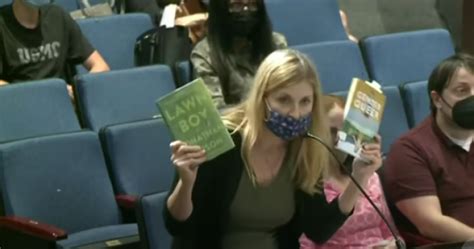
A New York judge has been censured for berating a school board to secure the valedictorian spot for her son, leading to questions of judicial overreach and ethical misconduct.
Judge Debra A. James, a Housing Court judge in New York City, has been formally censured by the New York State Commission on Judicial Conduct for abusing her position and engaging in conduct that compromised the integrity of the judiciary. The censure stems from Judge James’s actions at a May 2022 school board meeting where she vehemently advocated for her son to be named valedictorian of his graduating class. The commission determined that her behavior constituted an inappropriate use of her judicial office for personal gain, violating established ethical standards for judges.
According to the commission’s determination, Judge James engaged in a “loud, intemperate, and self-absorbed tirade” during the public school board meeting. She criticized the school’s grading policies and directly challenged the qualifications of another student who was also in contention for the valedictorian title. Witnesses at the meeting reported that Judge James repeatedly identified herself as a judge and implied that her position afforded her special consideration. The commission found that this behavior created the appearance of impropriety and undermined public confidence in the impartiality of the judiciary.
The incident began when Judge James learned that her son was not being considered the sole valedictorian, a distinction he reportedly sought. Believing the school’s policies were unfairly disadvantaging her son, she attended the school board meeting with the express purpose of lobbying for a change in the decision. During the meeting, she reportedly raised her voice, interrupted other speakers, and made disparaging remarks about the school administration and the student who was potentially sharing the valedictorian honor.
The New York State Commission on Judicial Conduct initiated an investigation following multiple complaints from attendees of the school board meeting. After reviewing the evidence, including witness testimonies and video recordings of the meeting, the commission concluded that Judge James had violated several provisions of the Rules Governing Judicial Conduct. Specifically, she was found to have used the prestige of her judicial office to advance her private interests and to have engaged in conduct prejudicial to the administration of justice.
In its formal censure, the commission emphasized that judges are expected to maintain the highest standards of conduct, both on and off the bench. The decision noted that Judge James’s actions demonstrated a lack of respect for the school board, the students, and the public, and that her behavior was unbecoming of a judicial officer. The censure serves as a public reprimand and a warning against future misconduct.
“Judges must conduct themselves at all times in a manner that promotes public confidence in the integrity and impartiality of the judiciary,” the commission stated in its decision. “Judge James’s actions fell far short of this standard and warrant the imposition of a public sanction.”
Judge James has served as a Housing Court judge in New York City for many years. Her role involves presiding over cases related to landlord-tenant disputes, eviction proceedings, and housing code violations. As a judge, she is expected to remain impartial and to apply the law fairly to all parties.
The censure by the New York State Commission on Judicial Conduct is not the first time a judge has faced disciplinary action for misconduct related to their personal interests. In recent years, there have been several instances of judges being sanctioned for abusing their authority, engaging in conflicts of interest, or violating ethical standards. These cases highlight the importance of maintaining judicial independence and accountability.
The New York State Commission on Judicial Conduct is responsible for investigating complaints of misconduct against judges and for recommending disciplinary action when warranted. The commission consists of eleven members, including attorneys, judges, and members of the public. Its mission is to ensure that judges adhere to the highest ethical standards and that the integrity of the judiciary is preserved.
The censure of Judge James has sparked debate about the role of judges in public life and the extent to which they should be allowed to advocate for their personal interests. Some argue that judges should be held to an even higher standard of conduct than other public officials, given the significant power and influence they wield. Others believe that judges, like all citizens, have a right to express their opinions and advocate for their beliefs, as long as they do so in a manner that does not compromise their impartiality or undermine public confidence in the judiciary.
The decision to censure Judge James underscores the importance of ethical conduct for all members of the judiciary. It serves as a reminder that judges must avoid even the appearance of impropriety and that they must uphold the highest standards of integrity and impartiality. The censure also highlights the role of the New York State Commission on Judicial Conduct in ensuring that judges are held accountable for their actions and that the public’s trust in the judiciary is maintained.
The incident has triggered broader discussions about the pressures on parents to ensure their children’s success and the lengths to which some parents will go to advocate for their children, particularly in competitive academic environments. It also raises questions about the potential for abuse of power when individuals in positions of authority use their titles or influence for personal gain. The case serves as a cautionary tale about the importance of maintaining ethical boundaries and avoiding conflicts of interest, even when personal matters are involved.
The investigation revealed that Judge James, during the school board meeting, not only identified herself as a judge multiple times but also suggested that the school’s decision would have implications for her professional standing. She reportedly stated that her reputation in the legal community would be tarnished if her son were not recognized as valedictorian, implying that the school board should consider her position when making their decision.
The commission found this to be a clear violation of the rules prohibiting judges from using their office for personal advantage. The commission’s report stated, “A judge should not lend the prestige of judicial office to advance the private interests of the judge or others.” Judge James’s conduct was deemed to have created an environment where the school board might have felt pressured to favor her son due to her judicial status.
In her defense, Judge James argued that she was acting as a concerned parent and that her passion for her son’s academic achievements should not be misconstrued as an attempt to exert undue influence. She claimed that she was merely advocating for what she believed was a fair application of the school’s policies. However, the commission rejected this argument, emphasizing that her behavior went beyond the bounds of appropriate parental advocacy and crossed the line into ethical misconduct.
The censure includes a formal written reprimand that will be made public, documenting Judge James’s inappropriate conduct. While it does not result in suspension or removal from office, it remains a significant blemish on her professional record and could have implications for future career opportunities within the judiciary. The decision sends a strong message to other judges about the importance of adhering to ethical standards and avoiding conflicts of interest.
The incident has also raised concerns about the impact on the school board members who were subjected to Judge James’s outburst. Some members reportedly felt intimidated by her behavior and expressed concerns about potential repercussions if they did not comply with her demands. The commission acknowledged these concerns and emphasized that school board members, like all public officials, should be able to perform their duties without fear of intimidation or harassment.
Legal experts have weighed in on the case, with many agreeing that the commission’s decision was justified. They argue that judges must be held to the highest ethical standards to maintain public trust in the judiciary. The perception of fairness and impartiality is crucial for the legitimacy of the legal system, and any actions that undermine this perception can have serious consequences.
The case has also prompted discussions about the role of parental involvement in education. While parental support and advocacy are generally encouraged, the Judge James incident highlights the potential for overzealousness and the need for parents to respect boundaries and avoid interfering inappropriately in school affairs.
The New York State Commission on Judicial Conduct’s investigation involved a thorough review of evidence, including video recordings of the school board meeting, written statements from witnesses, and submissions from Judge James herself. The commission conducted multiple hearings and considered arguments from both sides before reaching its final decision.
The commission’s decision is based on a comprehensive set of ethical rules that govern the conduct of judges in New York State. These rules are designed to ensure that judges act with integrity, impartiality, and fairness in all their dealings, both on and off the bench. The rules prohibit judges from using their office for personal gain, engaging in conflicts of interest, and acting in a manner that could undermine public confidence in the judiciary.
The censure of Judge James serves as a reminder of the importance of ethical oversight in the judicial system. The New York State Commission on Judicial Conduct plays a crucial role in investigating allegations of misconduct and ensuring that judges are held accountable for their actions. The commission’s work helps to maintain the integrity of the judiciary and protect the public interest.
The incident has also sparked debate about the valedictorian system itself. Some argue that the emphasis on a single top student creates undue pressure and competition, while others maintain that it is a valuable recognition of academic excellence. The Judge James case has added fuel to this debate, with some suggesting that the focus on valedictorian status may have contributed to the intensity of her advocacy.
The broader implications of the case extend beyond the specific incident involving Judge James. It highlights the need for ongoing education and training for judges on ethical conduct and the importance of maintaining professional boundaries. It also underscores the role of public scrutiny in holding public officials accountable and ensuring that they act in the public interest.
The censure of Judge James is a significant event in the New York legal community and serves as a reminder of the high standards of conduct expected of judges. It is a testament to the importance of ethical oversight and the commitment to maintaining the integrity of the judiciary. The case will likely continue to be discussed and debated for some time to come, as it raises important questions about the role of judges in public life and the boundaries of appropriate parental advocacy.
The commission’s investigation also looked into Judge James’s past conduct to determine if there were any prior instances of similar behavior. While no previous formal complaints had been filed, the commission noted that this incident was not an isolated event. Witnesses described Judge James as having a history of being assertive and demanding in her interactions with school officials, although this was the first time her behavior had risen to the level of ethical misconduct.
The commission’s decision emphasizes that judges are not only expected to uphold the law in their courtrooms but also to conduct themselves with decorum and respect in all aspects of their lives. Their actions reflect on the entire judicial system, and even seemingly minor lapses in judgment can have significant consequences for public trust and confidence.
The case has also prompted discussions about the appropriate role of judges in community affairs. While judges are encouraged to be involved in their communities, they must be careful to avoid situations where their judicial status could be perceived as giving them an unfair advantage or influencing decisions. This can be a delicate balance, as judges are also citizens with the right to express their opinions and participate in civic life.
The New York State Commission on Judicial Conduct has a long history of investigating and disciplining judges for misconduct. The commission handles hundreds of complaints each year, ranging from minor infractions to serious violations of ethical standards. The commission’s work is essential for maintaining the integrity of the judiciary and ensuring that judges are held accountable for their actions.
The censure of Judge James is a public record and will be available for review by the public and the legal community. This transparency is an important aspect of the disciplinary process, as it allows the public to see how the commission handles allegations of misconduct and holds judges accountable.
The case has also raised questions about the potential for implicit bias to influence decision-making in schools and other institutions. While there is no evidence to suggest that bias played a role in the school’s decision regarding the valedictorian, the incident has prompted discussions about the need for greater awareness of implicit bias and its potential impact on fairness and equity.
The broader implications of the case extend beyond the legal and ethical realms. It touches on issues of parenting, education, and social status, and it raises questions about the pressures and expectations that parents face in today’s competitive society.
The commission’s decision in the Judge James case sends a clear message to all judges in New York State: ethical conduct is paramount, and any actions that undermine public trust in the judiciary will be met with serious consequences. The case serves as a reminder of the importance of maintaining professional boundaries and avoiding conflicts of interest, even when personal matters are involved.
The New York State Commission on Judicial Conduct will continue to monitor Judge James’s conduct and will take further action if she engages in any future misconduct. The commission is committed to upholding the highest ethical standards for judges and ensuring that the public’s trust in the judiciary is maintained.
The case also underscores the importance of robust systems for reporting and investigating allegations of misconduct against public officials. The fact that multiple complaints were filed against Judge James demonstrates the effectiveness of the reporting mechanisms in place and the willingness of the public to hold public officials accountable.
The censure of Judge James is a significant event that will have lasting implications for her career and for the New York legal community. It serves as a reminder of the high standards of conduct expected of judges and the importance of maintaining public trust in the judiciary.
Frequently Asked Questions (FAQ)
1. What exactly did Judge Debra A. James do that led to her censure?
Judge Debra A. James was censured for engaging in a “loud, intemperate, and self-absorbed tirade” at a school board meeting in May 2022. She was advocating for her son to be named valedictorian and criticized the school’s grading policies, as well as the qualifications of another student. She repeatedly identified herself as a judge and implied her position should afford her special consideration.
2. What is the New York State Commission on Judicial Conduct, and what is its role in this case?
The New York State Commission on Judicial Conduct is responsible for investigating complaints of misconduct against judges in New York State. In this case, the commission investigated complaints about Judge James’s behavior at the school board meeting. After reviewing the evidence, the commission concluded that Judge James violated the Rules Governing Judicial Conduct and censured her. The commission’s role is to ensure judges adhere to the highest ethical standards and maintain the integrity of the judiciary.
3. What specific ethical rules did Judge James violate, according to the commission?
The commission found that Judge James violated rules prohibiting judges from using the prestige of their judicial office to advance their private interests and from engaging in conduct prejudicial to the administration of justice. This means she was found to have improperly used her position as a judge to try to influence the school board’s decision regarding her son’s valedictorian status.
4. What is the significance of a “censure” as a disciplinary action against a judge?
A censure is a formal, public reprimand. It is a significant disciplinary action that is placed on the judge’s record and is made available to the public. While it doesn’t involve suspension or removal from office, it can negatively impact the judge’s reputation and future career opportunities within the judiciary. It serves as a warning against future misconduct.
5. What are the broader implications of this case for judges and public officials?
This case highlights the importance of maintaining ethical boundaries and avoiding conflicts of interest, even when personal matters are involved. It reinforces that judges and other public officials must uphold the highest standards of conduct, both on and off the job, to maintain public trust in the judiciary and other institutions. It also raises questions about the appropriate level of parental involvement in education and the potential for abuse of power when individuals in positions of authority use their titles for personal gain.









